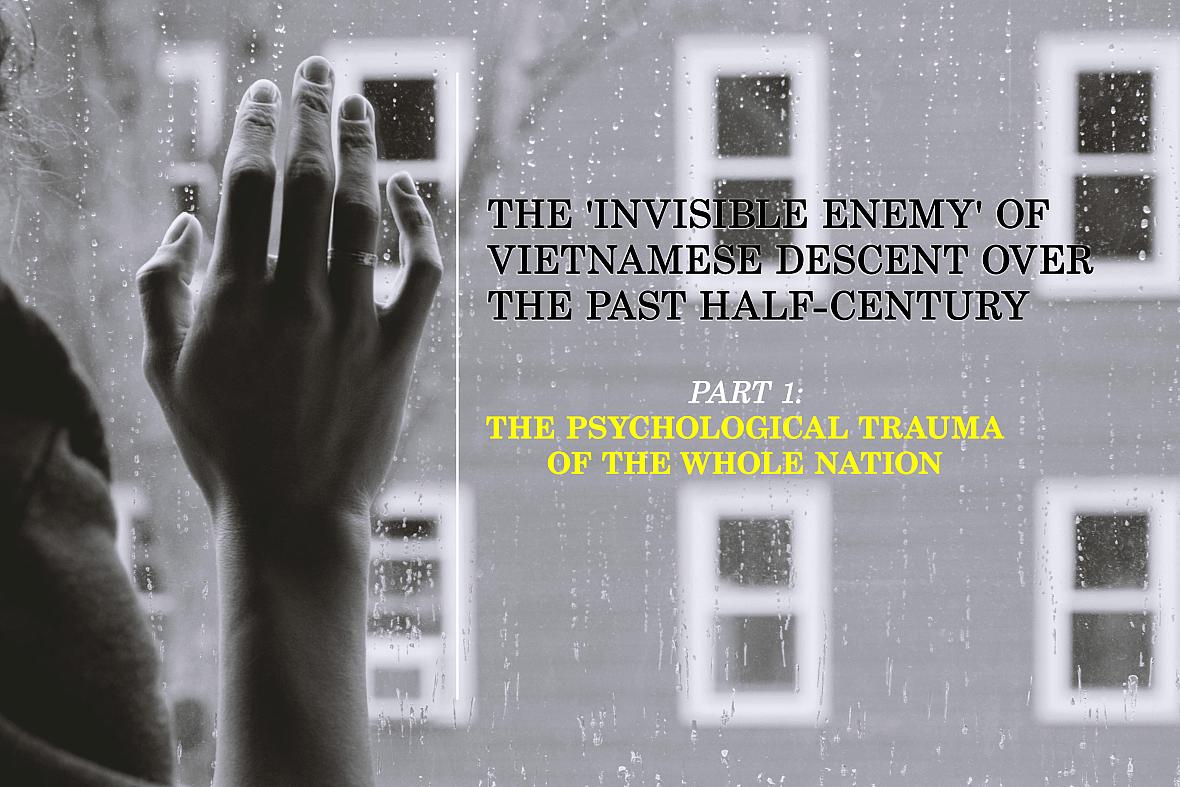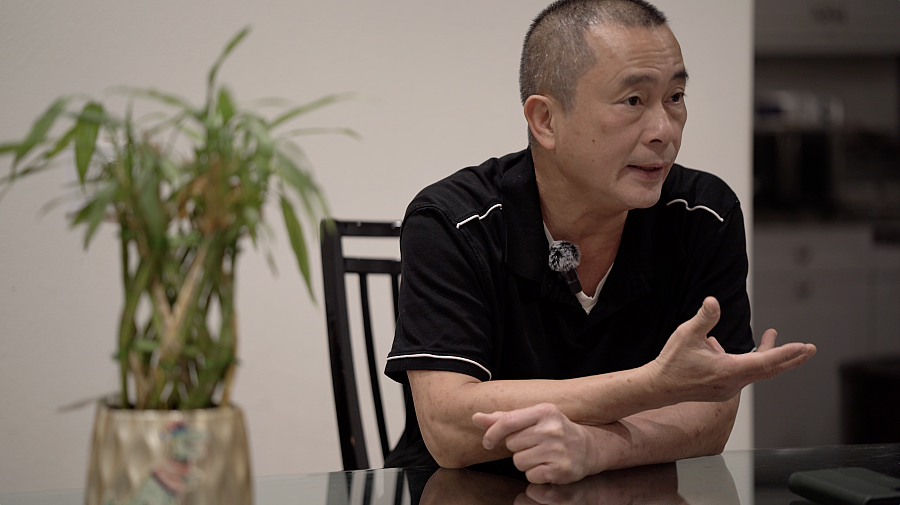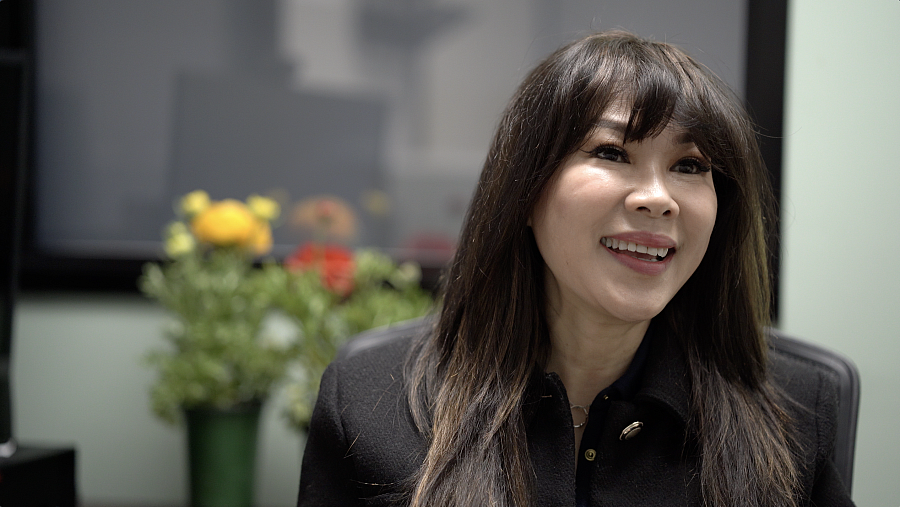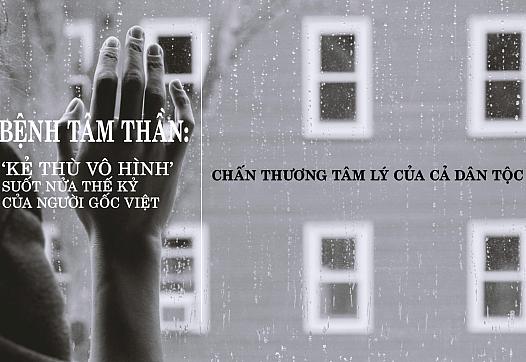The 'Invisible Enemy' of Vietnamese descent over the past half-century
The story was originally published in Nguoi Viet with support from the 2023 Impact Fund for Reporting on Health Equity and Health Systems.

The psychological trauma of the whole nation
Courtesy Kalynh Ngo
Not properly perceived
For more than two decades, American and Vietnamese professors have been studying how mental illness is perceived in Vietnamese society and culture. In 2018, a scientific report on mental illness was published by Cambridge University. It was authored by four professors, including Mai Do and Diem Nguyen, who are both Vietnamese American and work at Tulane University. The report revealed that many Vietnamese people believe individuals with neurological or behavioral disorders are "bad" because they think that the patient is being punished for their past wrongdoings in previous lives.
In Vietnamese culture, mental illnesses are often associated with the word "điên." It is just a simple word, but in the tradition of Vietnamese people, the word "điên" has strength and power, putting a lot of pressure on the family. Professor Joel Sadavoy, from the University of Toronto's Department of Psychiatry, who has also studied the issue, points out: “A điên person and their family are often severely disgraced and consequently the individuals and their family become reluctant to disclose and seek help for mental health problems for fears of rejection"
In 2016, an article in The Los Angeles Times quoted Pham, a graduate student at Cal State Fullerton, as saying, "There is no (positive) way to talk about mental illness with Vietnamese people."
“When we say ‘mental health,’ it’s usually associated with the word ‘crazy’ and we think of mental institutions,” said Pham, now a master’s student in counseling at Cal State Fullerton. “That’s why when people hear ‘mental health’ in my culture, they get scared. They think of it as something incurable, that the person is not normal.”

Dr Giao Nguyen discusses about The 'Invisible Enemy' of Vietnamese descent over the past half-century
Courtesy Kalynh Ngo
And the truth is that so far, the awareness of mental health in the habits of Vietnamese people has not improved.
Dr. Giao Nguyen, who has more than 30 years working for the federal government in the field of mental health, acknowledged the issue one afternoon in late 2023: "Vietnamese people in the U.S., and worldwide, in general, do not have proper awareness of mental illness."
"They don't know, or they despise or ignore it. Some even despise and blame the mentally ill. As Vietnamese, we're no strangers to half-joking statements like 'That guy has a mental illness.' The words are not shared, sympathetic, but spoken as a joke."
The psychological trauma of the whole nation
Vietnamese Americans are an ethnic minority in the United States who have gone through many events to lead a free life. According to Nguyen, the 1954 and 1975 migrations left them with difficult-to-heal wounds.
He said: "Throughout Vietnam's long history, our nation has endured countless wars that have resulted in devastating consequences such as starvation, death and severe psychological trauma. In addition to this, many Vietnamese people were subjected to mistreatment in communist 're-education' prisons. They had to endure the struggles of life on a boat crossing and in refugee camps. All of these experiences have resulted in higher rates of mental illness among Vietnamese people compared to other ethnic groups."

Dr Suzie-Dong
Courtesy Kalynh Ngo
Psychologist Suzie Dong, an active member of the Vietnamese community in Southern California, made a statement about the mental health of Vietnamese people, particularly Vietnamese refugees. She explained that the older generation had endured a lot of trauma due to the war, displacement, chaos, border crossings, and becoming refugees. Those imprisoned after 1975 had to deal with family changes. The 1980s also were a time of great difficulty for people in South Vietnam.
She said: "During my time in a therapeutic environment, I encountered the first generation of refugees who had various mental health conditions, such as depression, post-concussion crisis syndrome, nervousness and fear.”
According to Dong, the fear and exaggerated reactions within families prevent them from having a peaceful life.
“There are fears and exaggerated reactions within the family, between spouses and children, that prevent them from having a peaceful life," she explained.
Dong emphasized that psychological wounds from the previous generation unintentionally spread to the next generation through interactions.
She stated that when a person's brain undergoes tremors, it becomes conditioned to an environment that is always in a state of alarm, constantly feeling unsafe. This results in a lack of peace when interacting with family members, living in suspense and fear. The fear is that the child may contact bad people, not listen to their parents, and have many other fears, as they have experienced many worries in their past lives. This fear permeates the way parents interact with their children. This fear may also cause negative thinking among spouses over time.
Refugees often live in fear and negative thoughts due to past trauma and hard-to-heal wounds, which affects the psychological health of families and generations. This toxicity permeates their interactions.
A scientific report on mental illness published in the National Library of Medicine states: "The young generation of Vietnamese Americans grew up having difficulty adjusting to life in the United States. This can cause intergenerational conflict, trauma and significant mental health challenges."
Dr. Clayton Chau, former director of the Orange County Health Authority (OCHCA) and now chief strategy officer of National Healthcare & Housing Advisors, elaborated on the Vietnamese community's overall mental health picture.
"Past traumatic events and cultural adjustments are the two main causes of adverse mental health in the first and subsequent generations of Vietnamese Americans," Chau said.
The younger generation born and raised in the United States often experiences language barriers and cultural differences, particularly compared to their parents' upbringing. Nguyen said Vietnamese culture places a lot of emphasis on obtaining degrees.
"Vietnamese people always want their children to become engineers and doctors, demanding their children be perfect. From there, young people are depressed, which leads to psychological health problems," he explained.
The latest AAPI data released in 2023 shows the diversity of mental health issues facing Vietnamese Americans. If two decades ago, they faced the trauma of war, in recent years, especially after the COVID-19 pandemic, both generations continue to bear the brunt of racism.
According to a 2021 California Health Interview Survey, 62% of people of Vietnamese descent in California have a fear of gun violence, 22% have been victims of hate crimes and 13% live in constant fear of being a victim of hate crimes.
However, a surprising number in the California Health Interview Survey is that 70% of people of Vietnamese descent do not want to report hate crimes, citing "not wanting to be noticed."
According to Nguyen, “It’s an ill bird that fouls its own nest” creates an invisible killer for the psychological health of a person and his loved ones.


